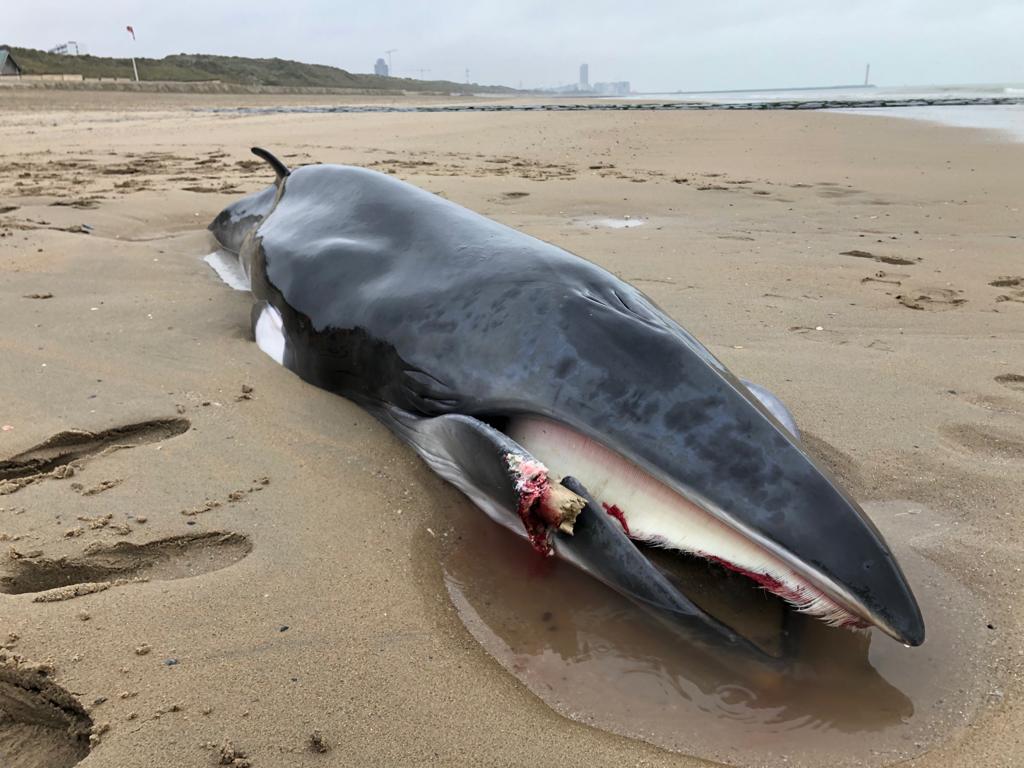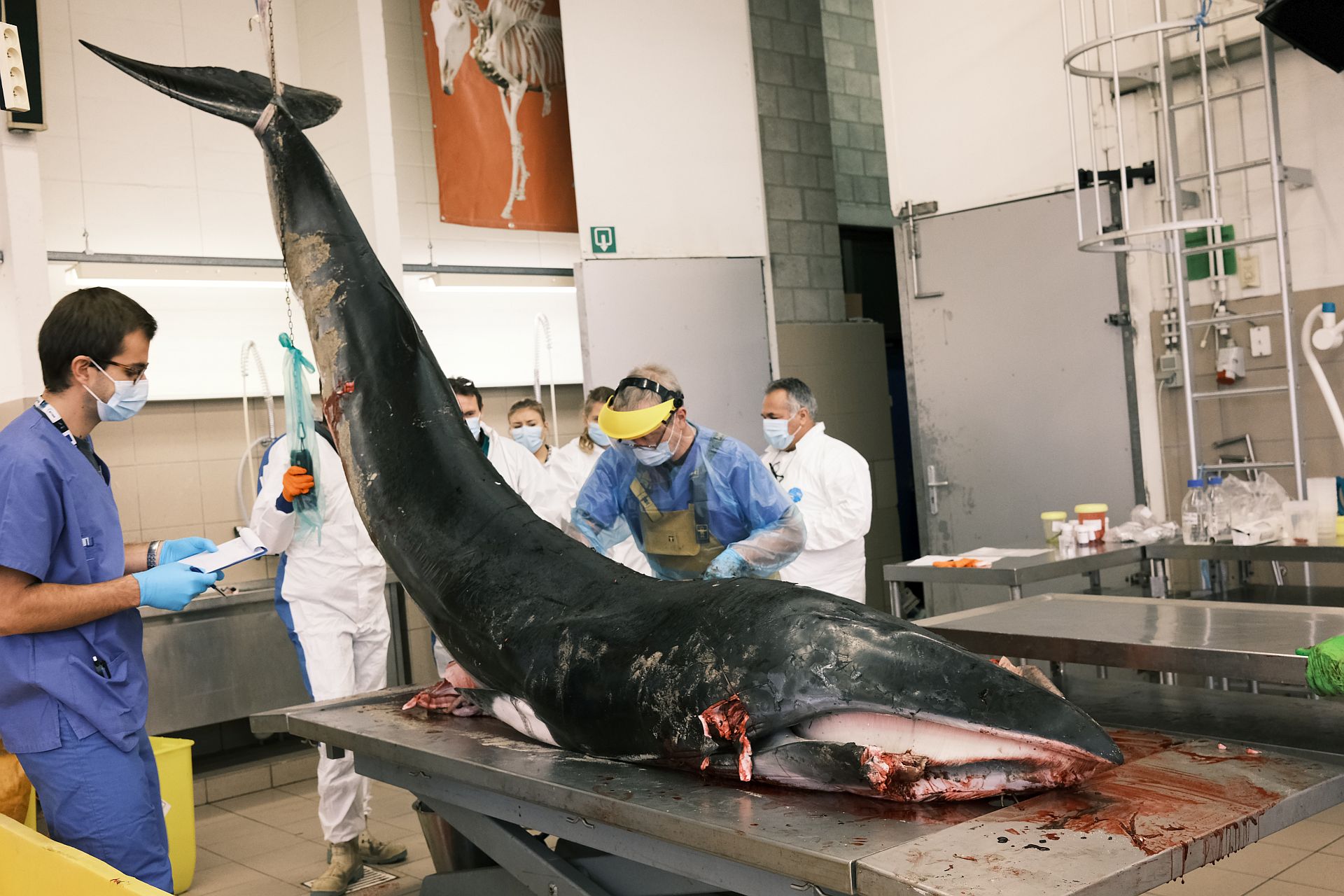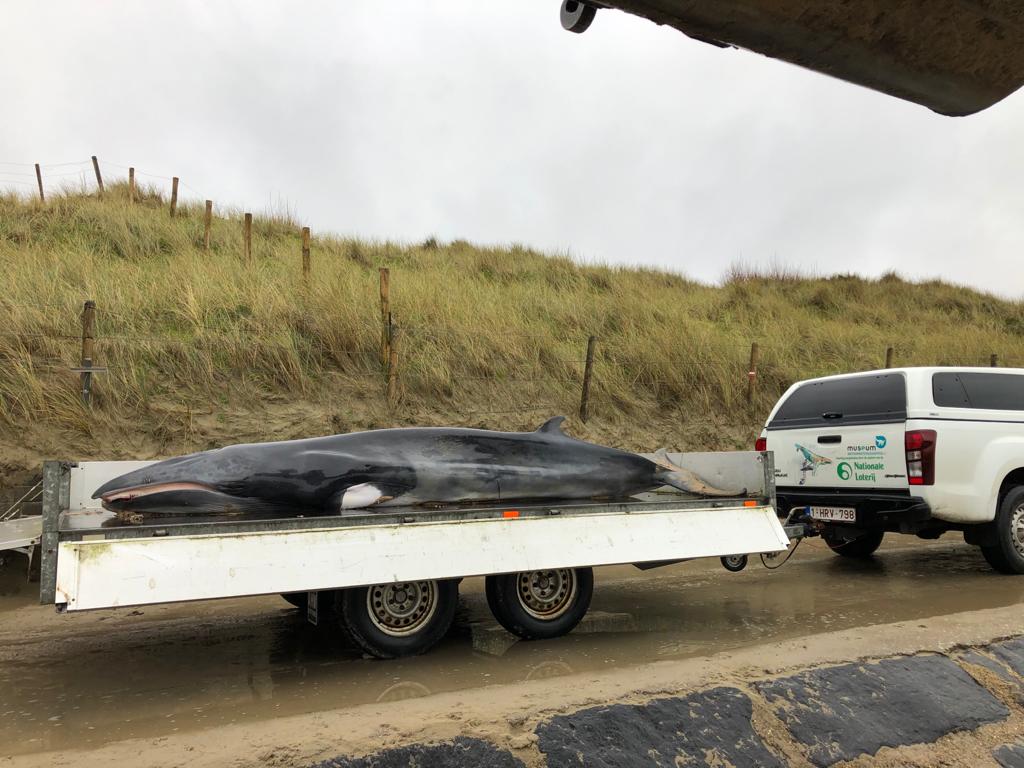A young minke whale that was washed ashore on Bredene beach on 11 December turned out to have a very unfortunate history: an empty stomach, intestines full of parasites and an abnormal spine. To make matters worse, two broken mandibles added to the problems. It is only the eighth minke whale that has been documented in Belgium during the past 20 years, and only the third stranding.
In the morning of Thursday 11 December 2020, the fresh carcass of a young minke whale (Balaenoptera acutorostrata) washed ashore on the beach of Bredene, near the border with Ostend. The animal, 3.89 m long (an adult minke whale can grow up to almost 10 m long) and weighing 489 kg, looked very skinny, and had a broken right lower jaw of which the bones protruded through the wound. A healthy specimen of the length of the Bredene minke whale should weigh about twice as much, so it was immediately suspected that it was in poor health even without fractures.

Autopsy reveals cause(s) of death
The carcass was immediately transferred to the Faculty of Veterinary Medicine at UGent, where a team from UGent and the ULiège performed an autopsy on 12 December. This post-mortem examination confirmed the poor condition of the unfortunate minke whale: no remains of a recent meal were found in the stomach, the digestive system was full of parasites and the spine showed abnormalities. The open fracture in the lower right jaw turned out to be less old than first suspected, and the lower left jaw also turned out to be broken. Eventually, the emaciation was not related to the fractures: the animal must have contracted them only very recently, and they were the result of a collision with an obstacle such as a vessel or a breakwater, or with the seabed.

Minke whales in Belgium
Although the minke whale is part of the North Sea fauna, its range is mainly limited to the northern and central parts of the North Sea. In recent years, however, they were more commonly observed in the south, probably due to changes in the marine ecosystem. “In Belgian waters, only seven proven cases are known to us from the last 20 years, three of which concerned carcasses while the other four referred to observations of live specimens.” explains Jan Haelters, expert on marine mammals at the RBINS. “The carcasses date from 2004 (found dead at sea and landed; died by bycatch), 2013 (stranded; died by swallowing a large amount of plastic) and 2017 (carcass in a far state of decomposition at sea). The live minke whales were observed in 2013, 2017, 2019 and 2020.” It is not known with certainty whether a number of reports from October 2020 actually concerned minke whales.

The skeleton of the Bredene minke whale will be preserved for science.
